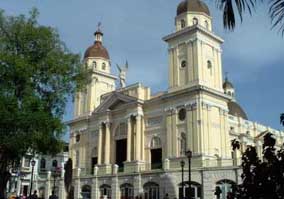Santiago de Cuba: 495 Years of Legacy
- Submitted by: admin
- Culture and Traditions
- Santiago de Cuba
- 07 / 25 / 2010

The Santiago de Cuba City Historian's Office plans to publish the books "Cronicas de la Republica" (Chronicles of the Republic) and new editions of "Articles by Emilio Bacardi y Moreau" to mark the 500th anniversary of the city of Santiago de Cuba.
Dr. Olga Portuondo, winner of the National History Prize and director of the Historian's Office, said the first book was written by Alcibiades Poveda, a diligent researcher of the history of Santiago de Cuba, while the second is one of the vital works of the city's first mayor.
Portuondo highlighted that in celebrating the 495th anniversary, so close to half a millennium, in 2015, it is important to emphasize that Santiago was the country's capital until 1608, following Baracoa, on the island's eastern tip.
Santiago, "Cuba's second city," was the administrative center of the eastern region and of the province of Oriente, created in 1905, until the political-administrative division in 1976, when five new provinces were created, Portuondo also noted.
Founded 13 years ago, the Santiago de Cuba Historian's Office has accumulated a rich legacy of research that reveals little-known or studied aspects of the seventh and final demarcation established by the Spanish on the island.
The Office's celebration will also include events devoted to the French and Italian presence in the city, as well as local historians' talks, which will bring together specialists from all around the country.
Dr. Olga Portuondo, winner of the National History Prize and director of the Historian's Office, said the first book was written by Alcibiades Poveda, a diligent researcher of the history of Santiago de Cuba, while the second is one of the vital works of the city's first mayor.
Portuondo highlighted that in celebrating the 495th anniversary, so close to half a millennium, in 2015, it is important to emphasize that Santiago was the country's capital until 1608, following Baracoa, on the island's eastern tip.
Santiago, "Cuba's second city," was the administrative center of the eastern region and of the province of Oriente, created in 1905, until the political-administrative division in 1976, when five new provinces were created, Portuondo also noted.
Founded 13 years ago, the Santiago de Cuba Historian's Office has accumulated a rich legacy of research that reveals little-known or studied aspects of the seventh and final demarcation established by the Spanish on the island.
The Office's celebration will also include events devoted to the French and Italian presence in the city, as well as local historians' talks, which will bring together specialists from all around the country.
Source. RHC
Comments